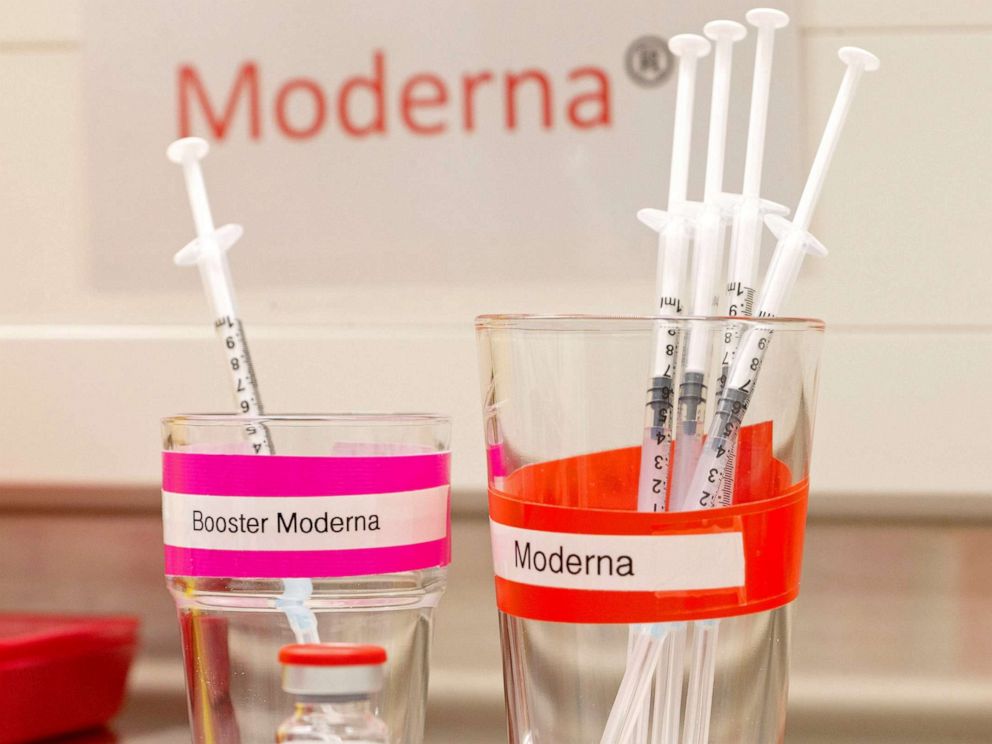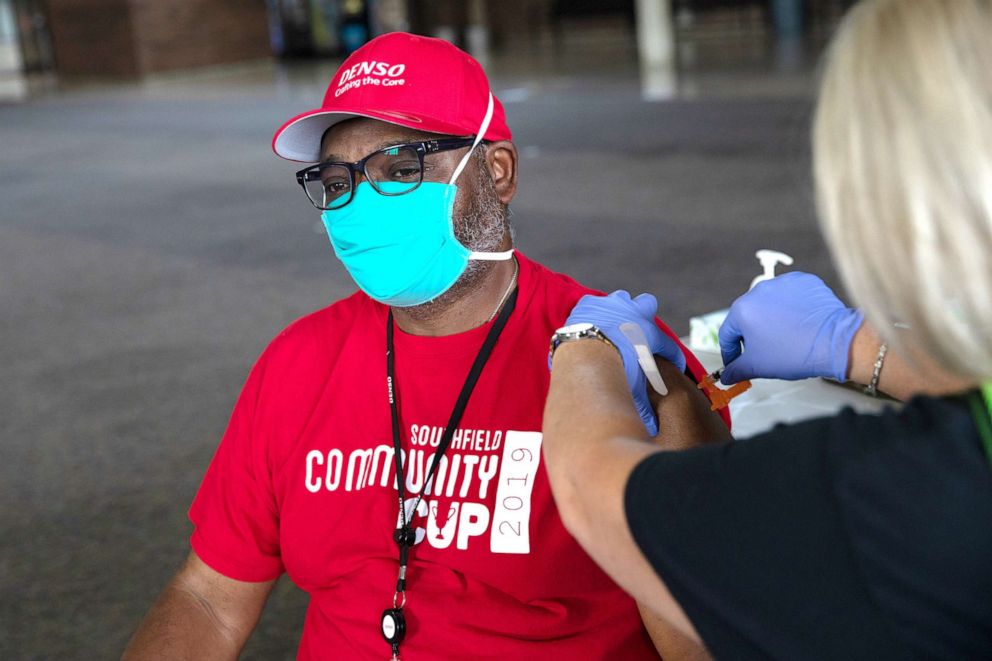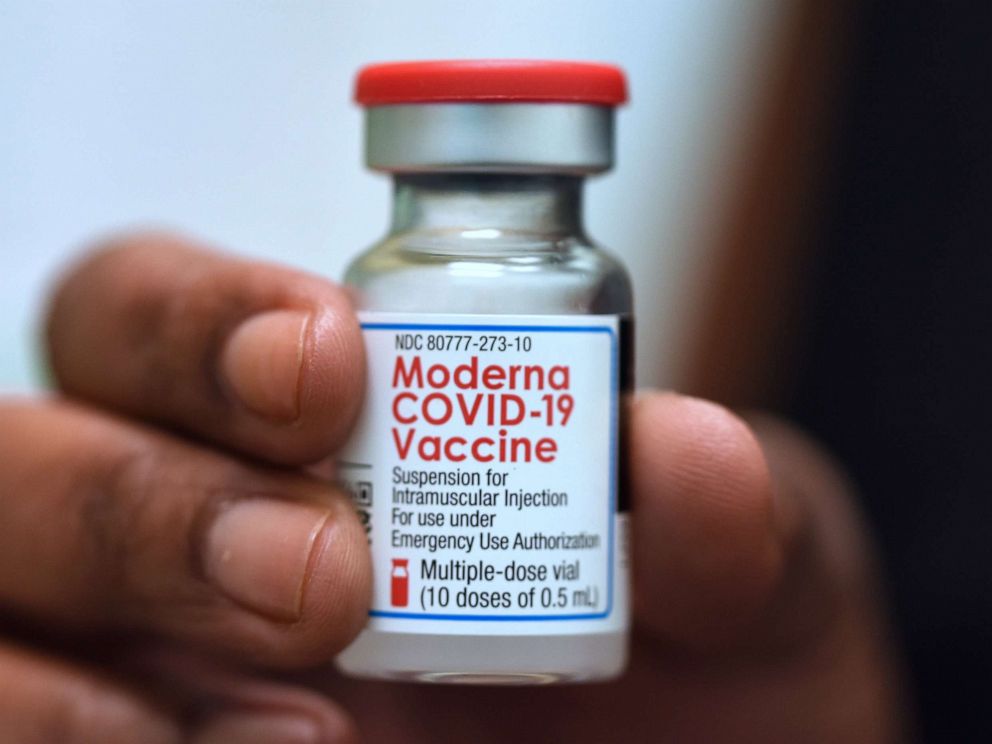Moderna says its COVID booster increases antibody levels against omicron variant
Neutralizing antibody levels rose 37-fold one month after the booster was given.
Moderna announced Monday that its COVID-19 vaccine booster increases antibody levels against the omicron variant within a month of getting the shot.
In a lab study, the company gave 20 fully vaccinated participants a 50-microgram booster -- the current dose authorized by the Food and Drug Administration -- and another 20 received a higher dose of 100 micrograms. After 29 days, the volunteers gave blood samples, which were analyzed.
Results showed people who received the 50-microgram booster saw their levels of neutralizing antibodies increase by 37-fold compared to pre-boost levels, while those given a 100-microgram booster saw their antibody levels rise 83-fold.
Side effects after the booster doses were similar to those seen after the initial two doses, but the 100-microgram booster was slightly more likely to cause adverse reactions than the 50-microgram dose, the company said.

The results come as the omicron variant continues to spread around the world and shows an ability to -- at least partially -- evade the protection offered by vaccines.
In a statement on Monday, Moderna's CEO, Stéphane Bancel, said the findings are "reassuring."
"The dramatic increase in COVID-19 cases from the omicron variant is concerning to all. However, these data showing that the currently authorized Moderna COVID-19 booster can boost neutralizing antibody levels 37-fold higher than pre-boost levels are reassuring," he said.
"To respond to this highly transmissible variant, Moderna will continue to rapidly advance an omicron-specific booster candidate into clinical testing in case it becomes necessary in the future," he continued.
A spokesperson for the Cambridge, Massachusetts-based company told ABC News it will be up to federal regulators to decide whether to authorize the 100-microgram dose of Moderna's booster or keep it at the currently-used 50-microgram dose.

Because participants were only followed up for one month after getting the booster, it's unclear if antibody levels remain high or if the increase quickly wanes.
Additionally, the tests were conducted in a lab and are not indicative of how well the booster, at either dose, stops the spread of omicron or reduces the risk of severe illness, hospitalization and death in people who get breakthrough infections in real-world settings.
Moderna said that, given how quickly the variant is spreading around the globe, the company will focus its "near-term efforts" on delivering as many doses of its authorized booster shot as possible.

The firm is also currently working on developing a booster specifically designed to combat the omicron variant, with clinical trials expected to begin early next year.
"Moderna is going to continue to evaluate an omicron-specific booster in early 2022, given the concerning immune escape features demonstrated by this variant of concern, as part of a more midterm strategy to address the ongoing pandemic," the company's president, Stephen Hoge, said on a conference call on Monday morning.
Earlier this month, health officials, such as Dr. Anthony Fauci, had suggested that developing an omicron-specific booster is not necessary.
However, Hoge said he believes it is "prudent" that Moderna's scientists continue their work on creating a variant-specific booster due to fears that omicron could mutate even further.